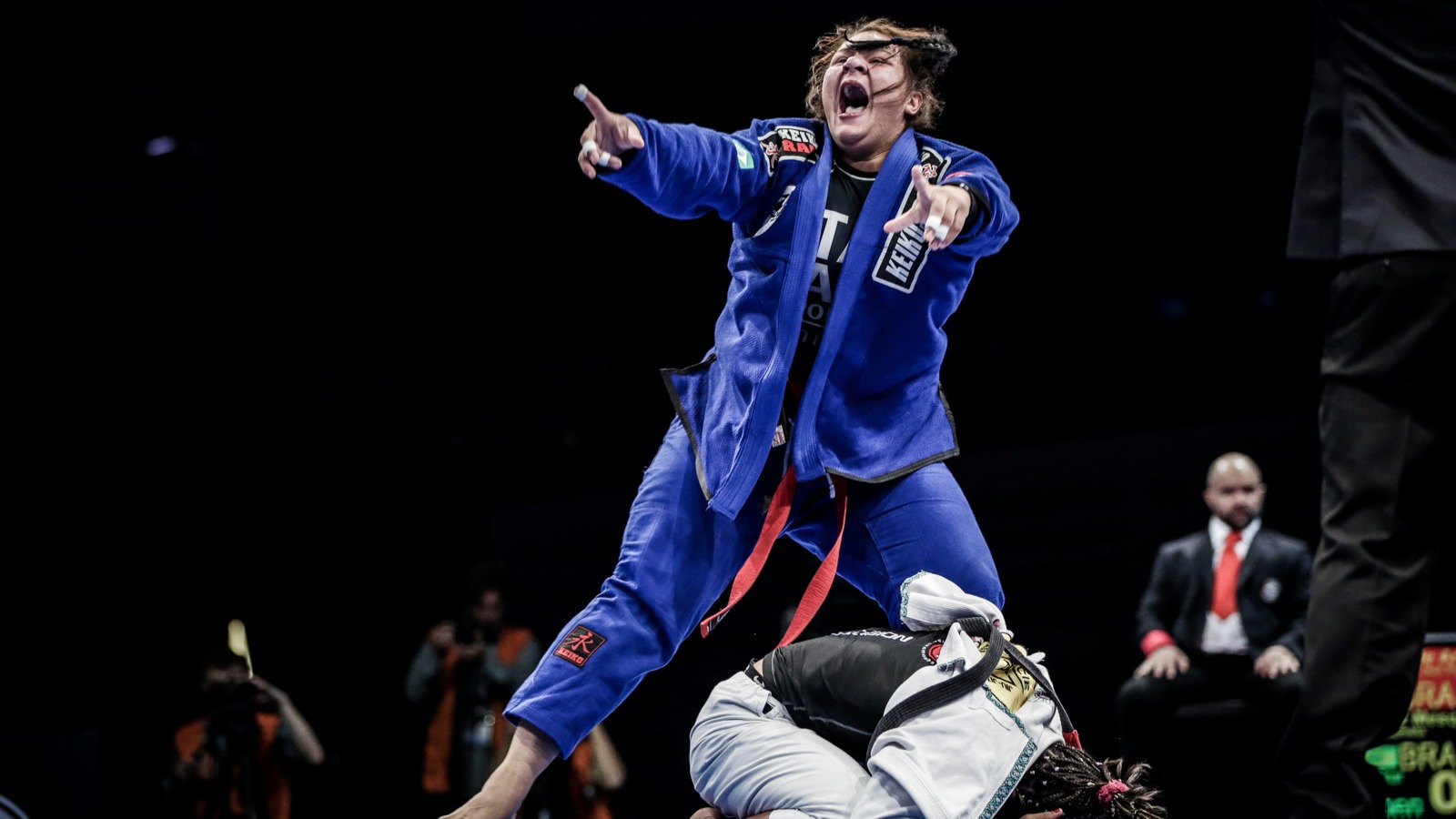UAEJJFJul 1, 2016 by Hywel Teague
No More Absolute: UAEJJF Explain Cancellation of Openweight Division
No More Absolute: UAEJJF Explain Cancellation of Openweight Division
The United Arab Emirates Jiu-Jitsu Federation (UAEJJF) has initiated a series of changes in its rules that eliminated the absolute (openweight) division fro

The United Arab Emirates Jiu-Jitsu Federation (UAEJJF) has initiated a series of changes in its rules that eliminated the absolute (openweight) division from future competitions.
It was recently announced that the UAEJJF would cap the upper weight limit for male competitors at 110kg, and for female competitors at 90kg.
The changes will affect some of the biggest (figuratively and literally) athletes in the sport. Marcus Buchecha, Tayane Porfirio, Alexander Trans, Otavio Nalati, and more will need to cut weight to make the limit.
“In the past, the UAEJJF was promoting the Trials, giving travel packages only for open weight winners at each belt (blue, purple, brown and black),” says Valerio. “The reason was clear that it would not be possible to give travel packages for every weight category.
“Based on that, for the past two years the UAEJJF has promoted—via the National Pro series of events—two openweights: lightweight open and heavyweight open. This was done to expand the opportunities for other weight classes. So these events had no more real openweight divisions.”
The two openweight categories will continue to exist at the National Pro trials, but the World Pro and Grand Slam events will no longer feature an openweight division.

2016 World Pro absolute champion Tayane Porfirio is one of the athletes affected by the revised weight divisions.
A series of studies showed the UAEJJF believed fans and media did not give as much attention to lighter weight classes, and focused more on the absolute division.
The UAEJJF also noted the majority of openweight competitors weighed in excess of 90kg (198lb). This raised issues of athletes’ safety, especially at the lower belt categories, where big size differences increased the risk of injury to competitors.
Other martial arts institutions such as the UFC and Olympic judo and wrestling place equal value upon champions across all the weight classes. To redress this balance, the UAEJJF sought to enforce these changes.
“We are not making major changes to the sport,” Valerio said. “Just to be more clear, we will take the light and heavy openweight champion from our National Pro events just as the last two years.
The revised weight divisions for UAEJJF events are:
Black Belt Men’s division
Featherweight: -62kg
Lightweight: -69kg
Welterweight: -77kg
Middleweight: -85kg
Light Heavyweight: -94kg
Heavyweight: -110kg
No upper divisions above 110kg
Black Belt Women’s division
Welterweight: -55kg
Middleweight: -62kg
Light Heavyweight: -70kg
Heavyweight: -90kg
No upper divisions above 90kg
It was recently announced that the UAEJJF would cap the upper weight limit for male competitors at 110kg, and for female competitors at 90kg.
The changes will affect some of the biggest (figuratively and literally) athletes in the sport. Marcus Buchecha, Tayane Porfirio, Alexander Trans, Otavio Nalati, and more will need to cut weight to make the limit.
Openweight Will Continue To Exist – Just Not At World Pro or Grand Slam
FloGrappling reached out to Assistant Technical Manager Rodrigo Valerio for clarification of these changes, and what they mean for fans and competitors going forward.“In the past, the UAEJJF was promoting the Trials, giving travel packages only for open weight winners at each belt (blue, purple, brown and black),” says Valerio. “The reason was clear that it would not be possible to give travel packages for every weight category.
Our technical committee noticed that only the heavier fighters were given a chance to win travel packages to the Abu Dhabi World Pro, taking the prize money and doubling their ranking points, which was seen to be unfair to the lighter fighters.
“Based on that, for the past two years the UAEJJF has promoted—via the National Pro series of events—two openweights: lightweight open and heavyweight open. This was done to expand the opportunities for other weight classes. So these events had no more real openweight divisions.”
The two openweight categories will continue to exist at the National Pro trials, but the World Pro and Grand Slam events will no longer feature an openweight division.

Equal Opportunities and Athlete Safety
In a series of in-house debates, the technical committee concluded that, in order to ensure equal opportunities for all athletes in all weight classes, changes were necessary.A series of studies showed the UAEJJF believed fans and media did not give as much attention to lighter weight classes, and focused more on the absolute division.
The UAEJJF also noted the majority of openweight competitors weighed in excess of 90kg (198lb). This raised issues of athletes’ safety, especially at the lower belt categories, where big size differences increased the risk of injury to competitors.
Other martial arts institutions such as the UFC and Olympic judo and wrestling place equal value upon champions across all the weight classes. To redress this balance, the UAEJJF sought to enforce these changes.
“We are not making major changes to the sport,” Valerio said. “Just to be more clear, we will take the light and heavy openweight champion from our National Pro events just as the last two years.
For the Abu Dhabi World Professional Jiu-Jitsu Championship, instead of giving a championships belt for the openweight, the UAEJJF will award a belt to the champion for each weight class.
The revised weight divisions for UAEJJF events are:
Black Belt Men’s division
Featherweight: -62kg Lightweight: -69kg
Welterweight: -77kg
Middleweight: -85kg
Light Heavyweight: -94kg
Heavyweight: -110kg
No upper divisions above 110kg
Black Belt Women’s division
Welterweight: -55kg Middleweight: -62kg
Light Heavyweight: -70kg
Heavyweight: -90kg
No upper divisions above 90kg